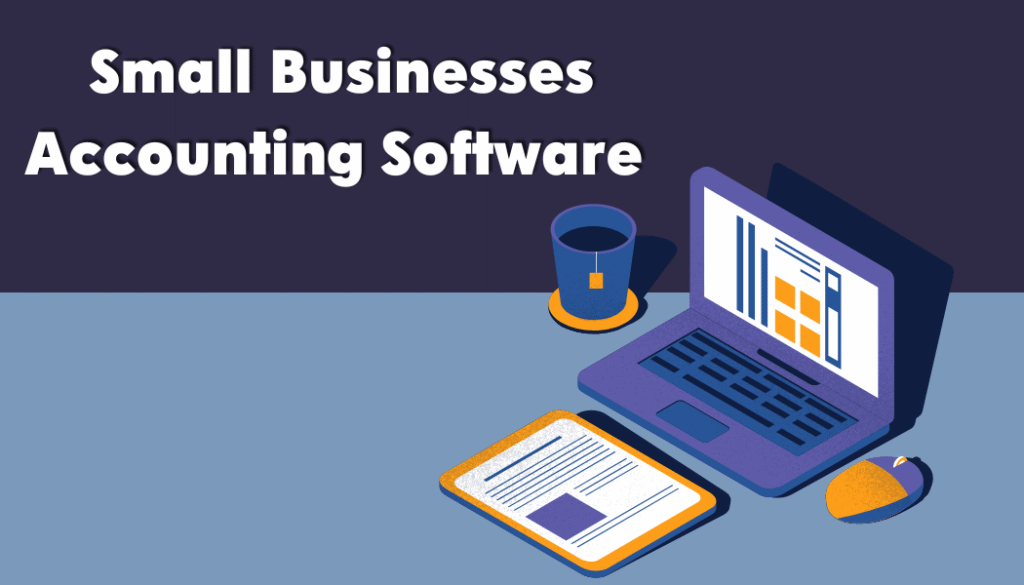
Choosing the right accounting software can significantly impact the efficiency and success of your small business. With so many options, it can be challenging to decide which one best suits your needs.
In this guide, we’ll compare some of the leading accounting software, highlighting their features, pros, and cons, and explain why one stands out as the top choice for small businesses.
Why Accounting Software is Essential
Accounting software simplifies the financial management of your business. It helps track income and expenses, manage payroll, generate invoices, and ensure compliance with tax regulations. By automating these tasks, accounting software saves time, reduces errors, and provides valuable insights into your business’s financial health.
Leading Accounting Software for Small Businesses
QuickBooks
Overview: QuickBooks, developed by Intuit, is one of the most popular accounting software solutions for small businesses. It offers a range of products, including QuickBooks Online, QuickBooks Desktop, and QuickBooks Self-Employed, catering to various business needs.
Features:
- Easy-to-use interface
- Comprehensive financial management tools
- Real-time tracking of income and expenses
- Customizable invoices
- Integration with numerous third-party applications
- Payroll processing
- Inventory management
- Tax preparation and filing
- Mobile app for on-the-go access
Pros:
- Highly user-friendly, even for those with limited accounting knowledge
- Scalable solutions for different business sizes and industries
- Extensive customer support and resources
- Regular updates and new features
- Cloud-based options for remote access
Cons:
- Can be more expensive than some competitors
- Advanced features may have a learning curve
Xero
Overview: Xero is a cloud-based accounting software designed for small and medium-sized businesses. It emphasizes simplicity and ease of use, making it a strong contender in the accounting software market.
Features:
- Cloud-based access
- Bank reconciliation
- Invoicing and quotes
- Inventory management
- Payroll integration
- Mobile app
- Financial reporting
Pros:
- Clean, intuitive interface
- Strong mobile app capabilities
- Unlimited users on all plans
- Integration with over 800 third-party apps
Cons:
- Limited customer support options
- Higher pricing for advanced features
- May lack some industry-specific features
FreshBooks
Overview: FreshBooks is known for its simplicity and is particularly popular among freelancers and small service-based businesses. It offers a straightforward approach to invoicing and expense tracking.
Features:
- Easy invoicing
- Expense tracking
- Time tracking
- Project management
- Reporting
- Mobile app
Pros:
- Extremely user-friendly
- Excellent customer support
- Strong invoicing and time-tracking features
- Good mobile app
Cons:
- Limited accounting features compared to other software
- No built-in payroll (requires third-party integration)
- Higher pricing for additional features and users
Wave
Overview: Wave offers free accounting software that provides essential features for small businesses and freelancers. It is an excellent choice for businesses with minimal accounting needs.
Features:
- Free to use
- Invoicing
- Expense tracking
- Bank reconciliation
- Receipt scanning
- Financial reporting
Pros:
- Completely free for core features
- User-friendly interface
- Good for basic accounting needs
Cons:
- Limited features compared to paid software
- No payroll in the free version (available as a paid add-on)
- Limited customer support
Zoho Books
Overview: Zoho Books is part of the Zoho suite of business applications. It offers a comprehensive set of accounting features, making it suitable for small to medium-sized businesses.
Features:
- Invoicing
- Expense tracking
- Inventory management
- Bank reconciliation
- Time tracking
- Financial reporting
- Client portal
Pros:
- Affordable pricing
- Integration with other Zoho apps
- Strong inventory management
- Customizable reports
Cons:
- Steeper learning curve
- Limited third-party integrations
- Customer support can be slow
Why QuickBooks is the Best Choice
While all the accounting software mentioned have their strengths, QuickBooks stands out as the best choice for small businesses for several reasons:
- Comprehensive Features: QuickBooks offers a wide range of features that cater to various business needs, from basic bookkeeping to advanced financial management. This makes it a versatile solution for different industries and business sizes.
- User-Friendly Interface: QuickBooks is designed with small business owners in mind, offering an intuitive and easy-to-navigate interface. This reduces the learning curve and allows users to quickly get up to speed with the software.
- Scalability: As your business grows, QuickBooks can scale with you. It offers different plans and products that cater to growing businesses, ensuring you don’t outgrow the software.
- Integration Capabilities: QuickBooks integrates with a vast array of third-party applications, including payment processors, CRM systems, and e-commerce platforms. This enhances its functionality and allows you to streamline your business operations.
- Customer Support: QuickBooks provides extensive customer support through various channels, including phone, chat, and a comprehensive knowledge base. This ensures you have access to help whenever you need it.
- Regular Updates: Intuit continuously updates QuickBooks, adding new features and improvements to keep up with the latest industry trends and regulatory requirements. This ensures you always have access to the best tools available.
Conclusion
Choosing the right accounting software is crucial for the smooth operation and growth of your small business. While there are many options available, QuickBooks stands out as the best accounting software due to its comprehensive features, user-friendly interface, scalability, and strong customer support. Whether you’re a freelancer, a startup, or a growing business, QuickBooks provides the tools you need to manage your finances effectively and efficiently.




